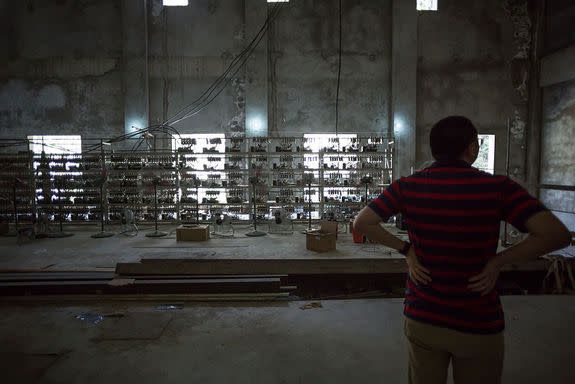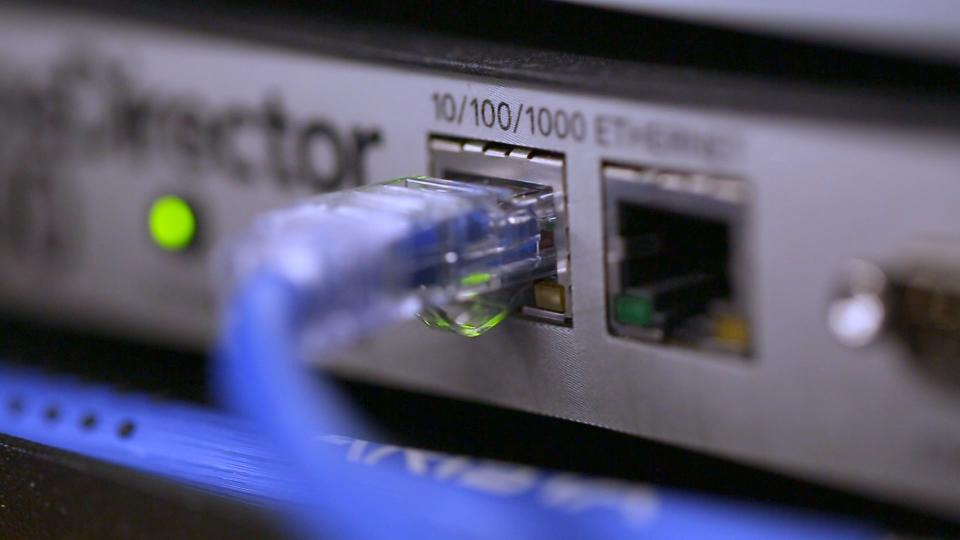Warring factions are splitting Bitcoin in 2. Here's what you need to know.

The wild world of Bitcoin is about to get a whole lot wilder.
On August 1, 2017, the preeminent cryptocurrency is set to break in two. Two warring factions, fundamentally divided on Bitcoin's future, are coming to a head — and the impending split could either save Bitcoin or doom it.
SEE ALSO: Why Bitcoin is surging again, in plain English
The split, called a hard fork, will result in two separate and distinct cryptocurrencies: Bitcoin Cash and Bitcoin. Oh, and it also has the potential to create billions of dollars worth of new cryptocurrency out of thin air.
But that's not what this is really about. Bitcoin as it currently stands is in trouble, and with so much money on the line opposing parties have naturally come forward with plans to save it. And, surprise, they all don't agree on the solution.
That resulting disagreement is set to play out in full force at 5:20 a.m. PT on August 1 with the launch of the Bitcoin Cash protocol, and many in the Bitcoin community have no choice but to hold their breath and wait to see how it all goes down.
So what, exactly, is going on here? Why is Bitcoin set to fork, who are the players involved, and what does this mean for the future of the cryptocurrency?
Bitcoin at a crossroad
Fundamentally, at issue is something called block size. The Bitcoin of today has a limit of 1MB of data per block on the blockchain, and back when BTC was first created this was more than enough to process every transaction in a timely manner.
However, as the popularity of the cryptocurrency has grown so has the trading volume. As it now stands, the number of transactions is limited to around 3 per second, and a single transaction on the blockchain — essentially the act of making a payment — can be delayed for extended periods of time as it waits for available space on the next block.
As trading volume increases, the wait will only get worse.

Image: The Washington Post/Getty Images
This is a problem, albeit one with a seemingly easy solution: Couldn't the Bitcoin community simply increase the block size? After all, raising it from 1MB to, say, 2MB would be technically straightforward — assuming you can get everyone to agree on it.
But therein lies the rub. Bitcoin is distributed, and a consensus is needed to make changes to the code. It's a disagreement about one of those proposed changes that is behind the August 1 hard fork.
A group of Bitcoin developers, led by Jeff Garzik, is pushing an update known as SegWit2x ("segregated witness"). This update will (among other things) free up block space by removing signature data from Bitcoin transactions. This, in turn, will increase transaction speeds.
Problem solved, right?
Well, not exactly. Because here's the thing: That's not all SegWit2x does. In addition to increasing block capacity, SegWit2x allows for the implementation of so-called "second-layer solutions" such as the Lightning Network. A second-layer solution would in effect move transactions off of the blockchain — a nonstarter for many in the community.
If you want to stop people from using #BitcoinCash you are the type of person that Bitcoin itself was invented to help bypass.
— Roger Ver (@rogerkver) July 28, 2017
In the face of SegWit2x, another group in the world of Bitcoin has come forward with a different solution. It's called Bitcoin Cash, and would increase the block size to 8MB. This would solve the problem of jam-packed blocks, and consequently speed up transactions times while reducing associated fees.
It's also an entirely separate cryptocurrency, but one born out of Bitcoin.
What does this mean?
Bitcoin Cash is set to launch on August 1, and, in doing so, will take the existing Bitcoin ledger and fork off into something new. So, if you currently own one Bitcoin, as of 5:20 a.m. PT on August 1 (assuming things go down as planned) you will own both one Bitcoin and one Bitcoin Cash (as long as you control your own private keys).
"All current Bitcoin holders will automatically own Bitcoin Cash," explains the Bitcoin Cash page. "The existing ledger at the time of the split is preserved, thus users retain any balances they had before the split."
With Bitcoin Cash futures trading at $294 at the time of writing, that's a nice windfall — unless it all goes to shit in the process.
Which, well, it might. No one really knows what's going to happen on August 1. The hard fork could go smoothly, or both Bitcoin and Bitcoin Cash prices could plummet as exchanges struggle to keep up with panicked traders. Or the fork might not even happen at all! The crew behind Bitcoin Cash could decide at the last minute to abandon its plan.
Whatever happens, August 1 if going to be a big day in the cryptocurrency community. We suggest you stock up on popcorn.
This post has been updated to note that Jeff Garzick is leading the backers of Segwit2x.
WATCH: Step inside the secretive class that turns people into hackers


